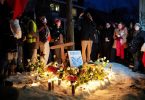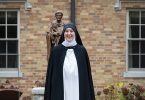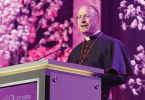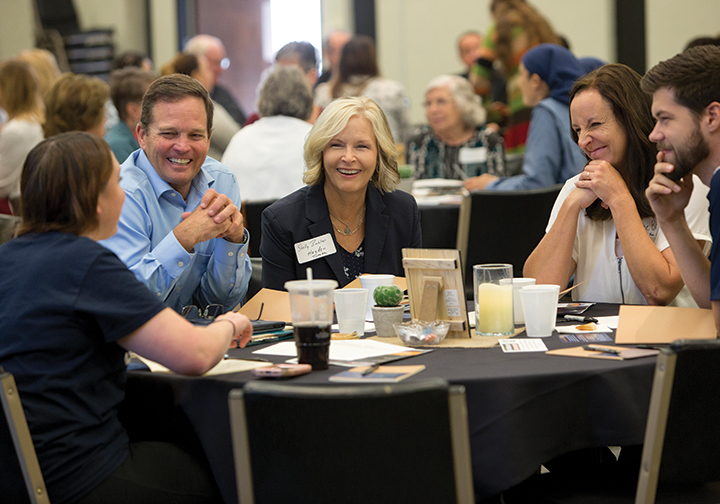
by Joe Bollig
joe.bollig@theleaven.org
KANSAS CITY, Kan. — A challenging question was asked by Canadian evangelist Andre Regnier: What percentage of Catholics would you say are missionary disciples?
The answer was shocking. Out of the 20% of Catholics who attend Sunday Mass weekly, he said, only 1% fit the bill.
Regnier and Tesi Carmona Wagner, both with Catholic Christian Outreach ministry, were keynote presenters at the archdiocesan convocation held on Sept. 8 in the Keleher Conference Center at Savior Pastoral Center in Kansas City, Kansas.
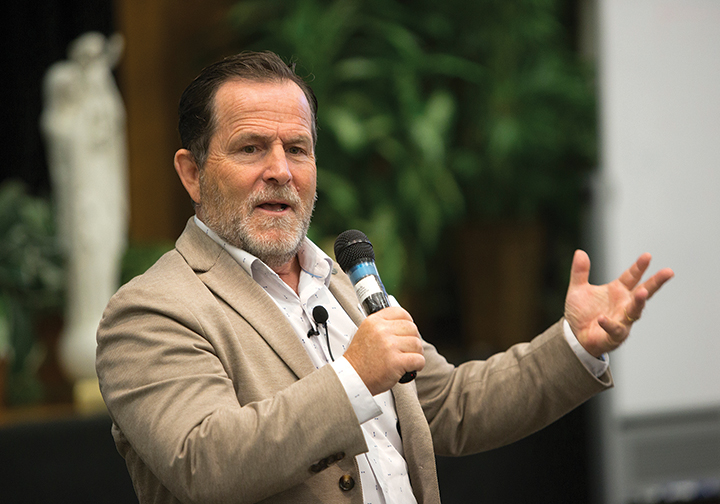
The last archdiocesan convocation, held in October 2019, launched the three-year evangelization initiative “Enflame Our Hearts, Our Homes and Communities.”
After a four-year gap due to the pandemic, this year’s convocation, held by the archdiocesan office of evangelization, came back with an expanded format.
It now provides for an English-language session in the morning, and a Spanish-language session in the evening.
“We had a gathering in Spanish because the office of evangelization wants to serve the Hispanic community more effectively — that is, by taking the same initiatives developed in English and providing them in Spanish,” said Karla Melgar, consultant for evangelization and convocation co-organizer.
“Using this strategy, we will have more consistency with the mission we are called to share,” she added.
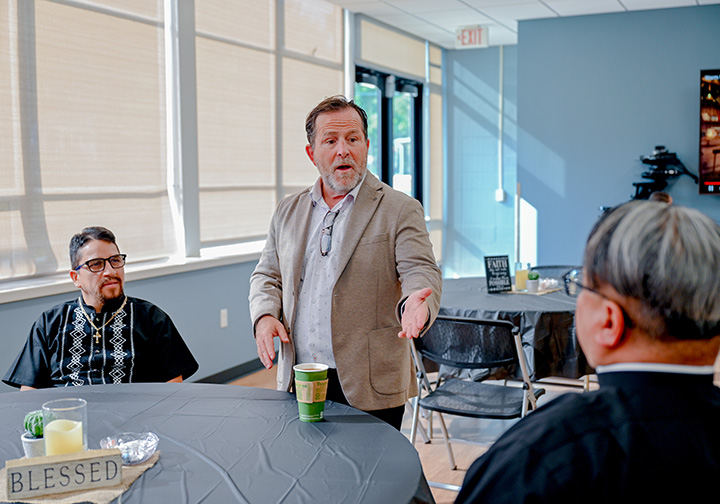
The convocation was attended by more than 200 priests, deacons, religious, parish leaders, educators, organization representatives and parishioners.
The event’s theme was “Building Catholic Communities in Relationship with Christ and Others.”
Preparation for the coming Year of Parish Revival for the National Eucharistic Revival and empowering Catholics for evangelization figured prominently in the convocation. Attendees were urged to become missionary disciples and, in turn, mentor others to become the same.
“The objective for today is, one, I want to speak about conversion,” said Regnier. “Conversion has everything to do with your parish. We want our parishioners to be disciples. Not cultural Catholics — disciples — followers of Jesus. And it is conversion, profound metanoia, that will bring about making disciples.
“But the second point is [that] intentional accompaniment, walking with our people, will raise up missionary disciples. If we want to multiply what we have, we need to intentionally accompany the people around us, and that will raise up leaders in our parishes.”
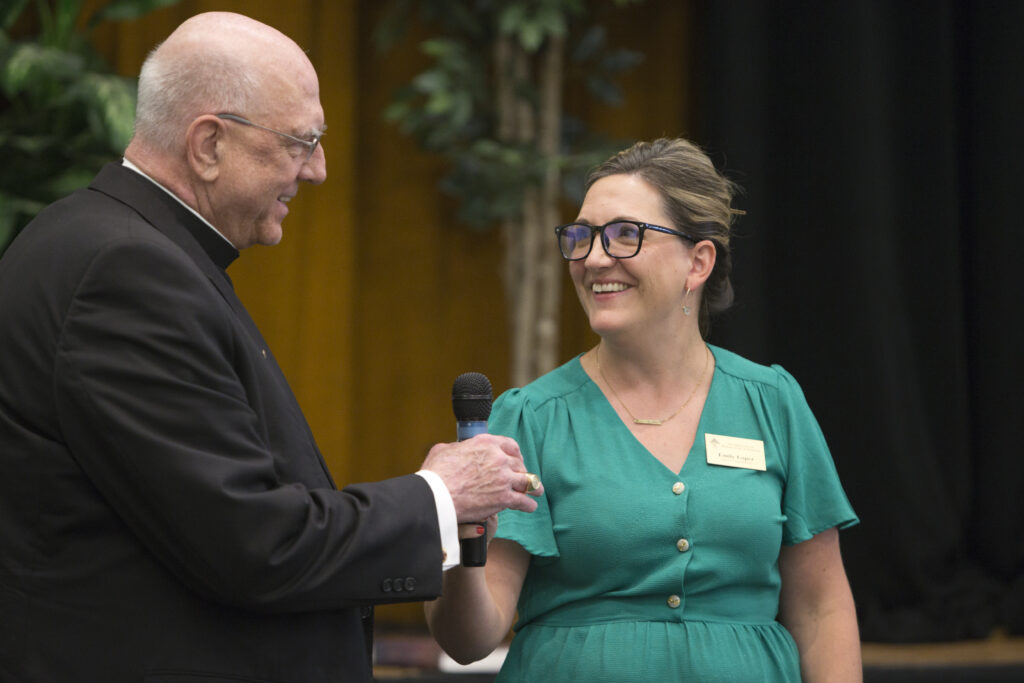
Regnier, who with his wife Angele founded Catholic Christian Outreach in 1988, is working with the archdiocese to mentor missionary disciples in our parishes.
“We’ve recently entered into an archdiocesan partnership with him that brings consistent experience, materials and resources for accompaniment and discipleship in English and Spanish into our community,” said Emily Lopez, lead consultant for the archdiocesan office of adult evangelization and convocation co-organizer.
“He has a long history of understanding discipleship,” she continued. “But even more, beyond what he’s done on college campuses, he understands relationship and what it looks like in a parish community.”
Lopez is being mentored by Regnier and Melgar is being mentored by Carmona Wagner.
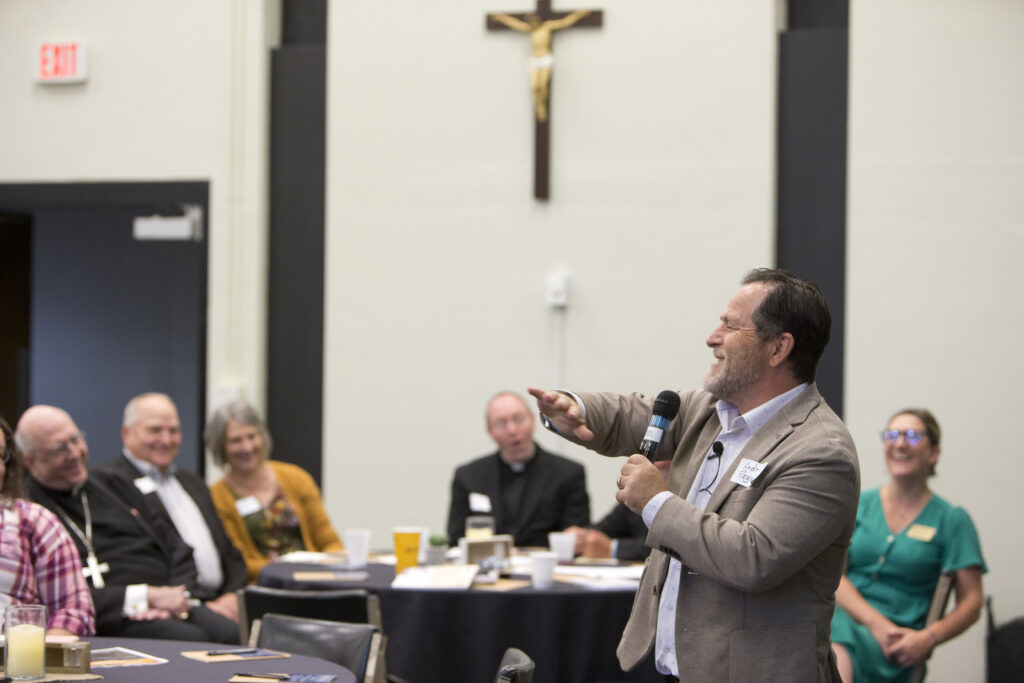
In his presentation, Regnier talked about his upbringing as a “cultural Catholic” in the Canadian milieu, which is strongly secular and inhibits expressions of the Christian faith.
During his college years he had a powerful experience of reconversion to the Catholic faith, became involved in the Catholic charismatic movement, and briefly associated with Protestant evangelicals. It was the evangelistic fervor of the former that demonstrated to him what missionary discipleship could be. It led to the founding of the Catholic Christian Outreach.
“A disciple is someone who has had a conversion,” said Regnier, “somebody who has responded in a very intentional way, and someone who is living their faith in a way we can describe as a relationship with Jesus.”
Missionary disciples, said Regnier, experience conversion, have a testimony to offer, have a relationship with Jesus and possess a desire to make Jesus known to others he described as “the lost.”
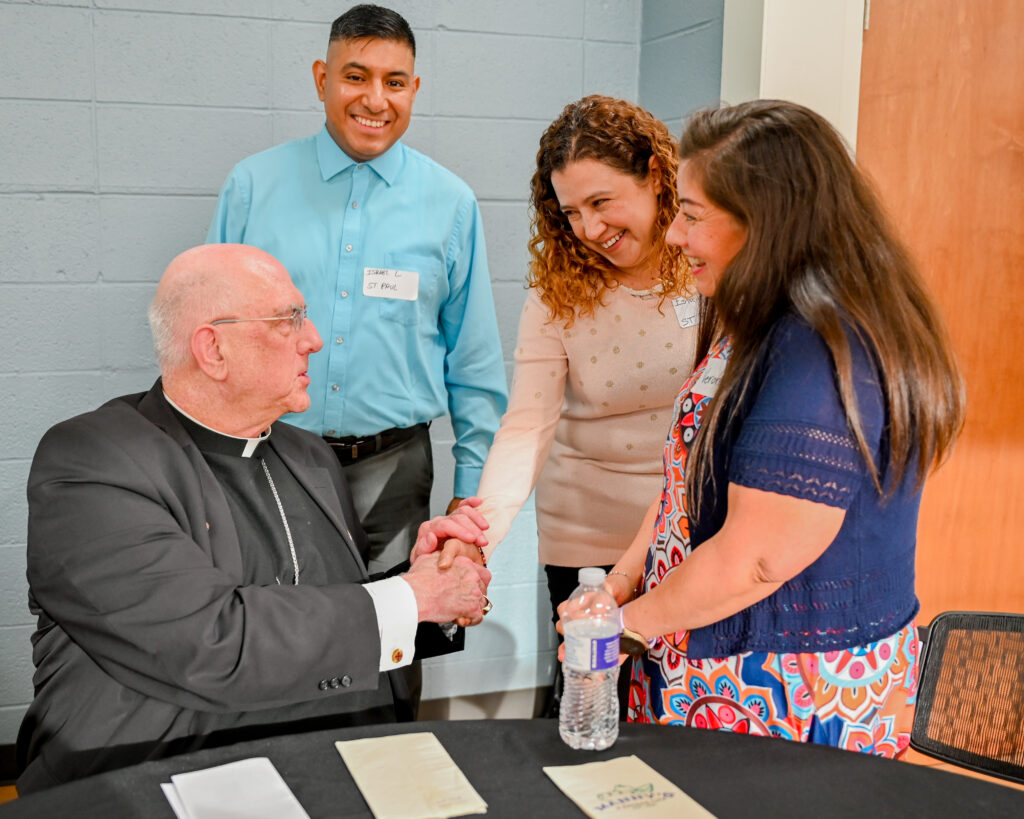
The purpose of the church is to evangelize, he said.
“We’re going to search out the wanderers and present the message of the Gospel in a clear and simple way so they can understand it and respond to it the way I responded to it. God will change their life and we’ll introduce them to the church and become missionaries themselves — be a disciple and make disciples. Not with the platitudes of evangelization but the action of evangelization,” said Regnier.
Regnier’s message found a receptive audience.
“It was great, a good reminder to extend the invite, not just give the information or tell kids to have a relationship but invite them into a relationship [with Jesus],” said Austin Krause, director of campus ministry at St. James Academy in Lenexa.
The sobering statistic of only 1% of Catholics being missionary disciples didn’t surprise him.
“It wasn’t too shocking, unfortunately, when you think about the one percent,” he said. “You see the statistics that only 20 percent [of Catholics] go to Mass once a month. When you see one percent of that . . . it makes sense. There are a lot of things we’re doing as a school, an archdiocese and as a church to move the needle.”
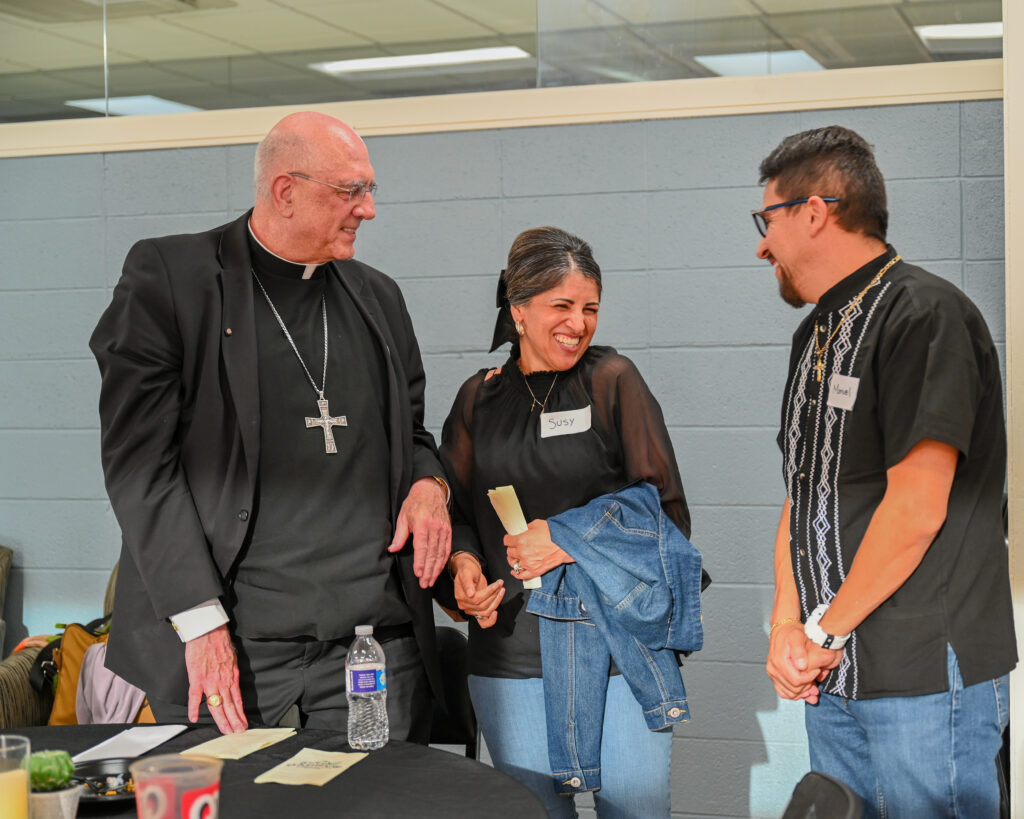
Shawna Davidson, minister of sacramental accompaniment at St. Michael the Archangel Parish in Leawood, found the day useful.
“I was very happy to hear Andre talk about usable skills,” she said. “I’ll take them back to the parish for my work in sacramental accompaniment and utilize them tomorrow morning in baptismal preparation.”
Melgar hopes that all the attendees will take what they learned at the convocation back to their parishes.
“I want everyone . . . to continue the conversations about evangelization because it is our primary mission as a church,” she said. “That is why we exist, and it is urgent — today more than ever — that we can grow and carry out this mission together.”
After a four-year gap due to the pandemic, this year’s archdiocesan convocation, held by the archdiocesan office of evangelization, came back with an expanded format. The convocation was attended by more than 200 priests, deacons, religious, parish leaders, educators, organization representatives and parishioners.

